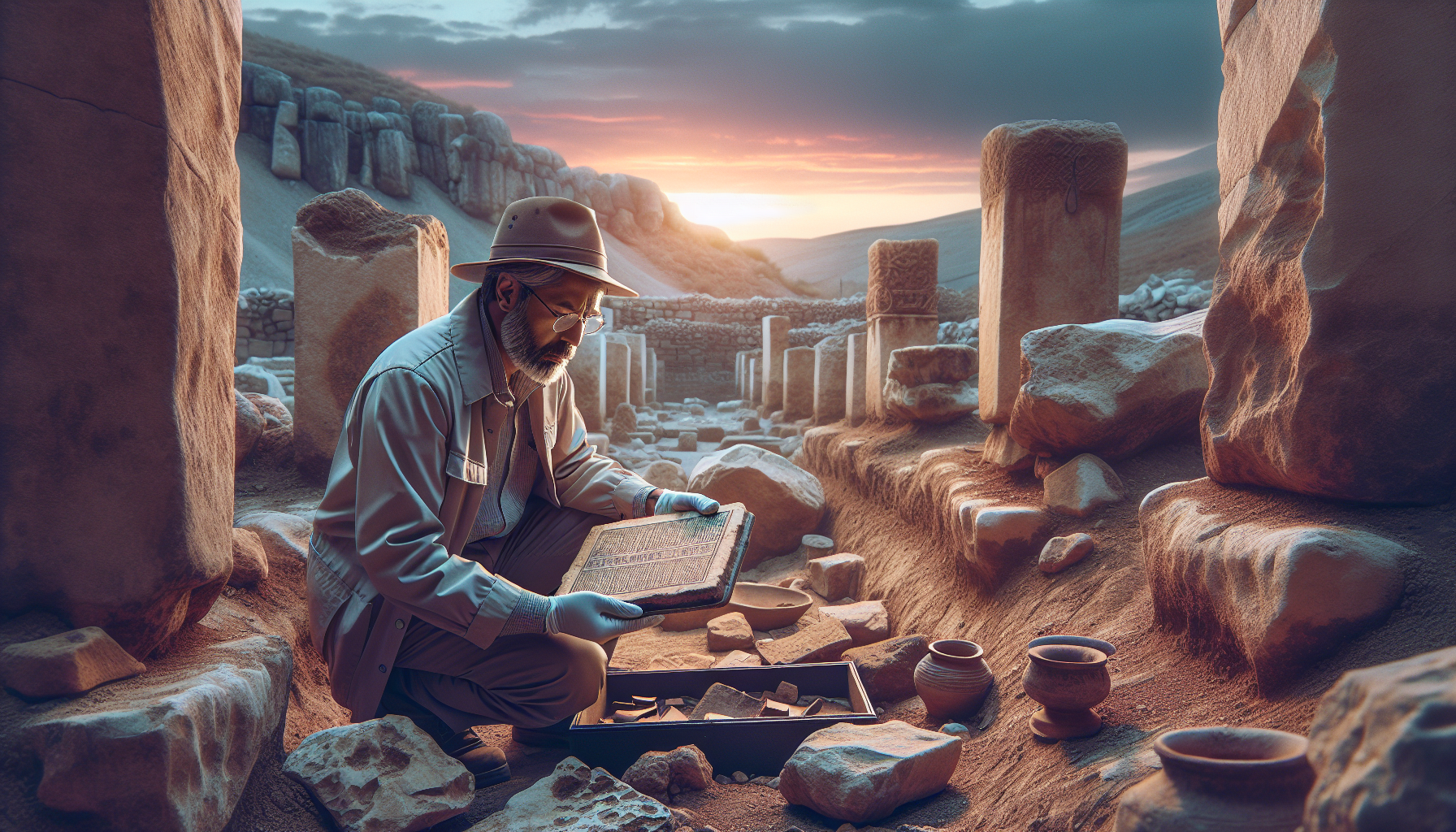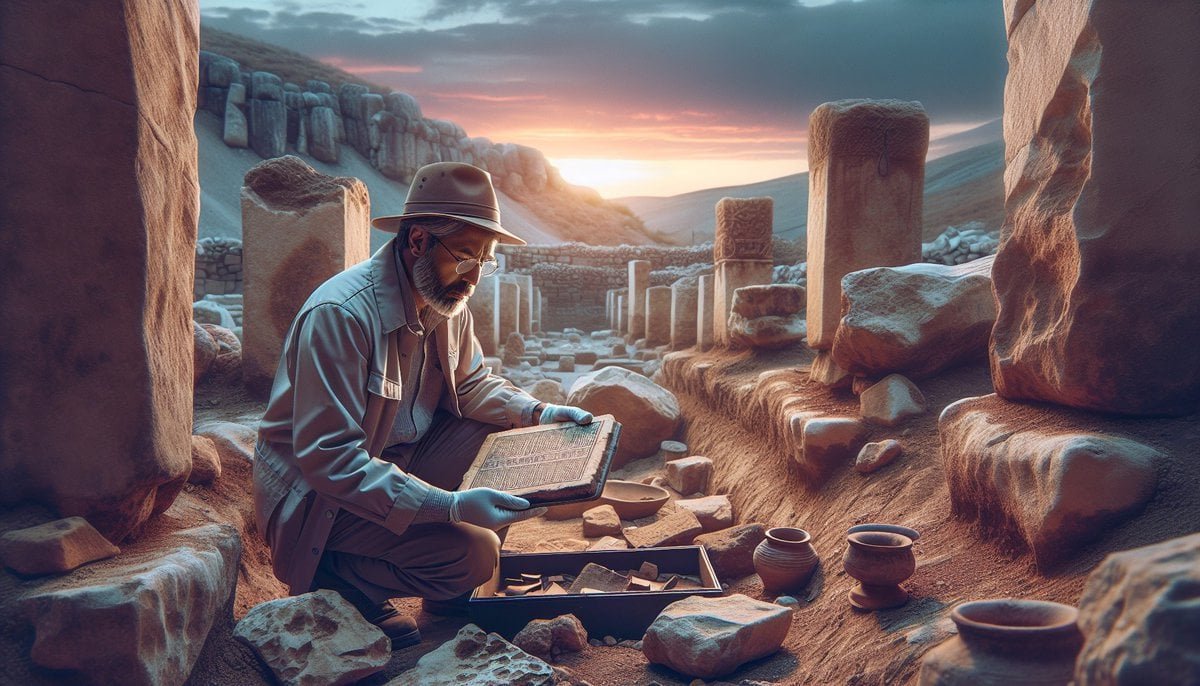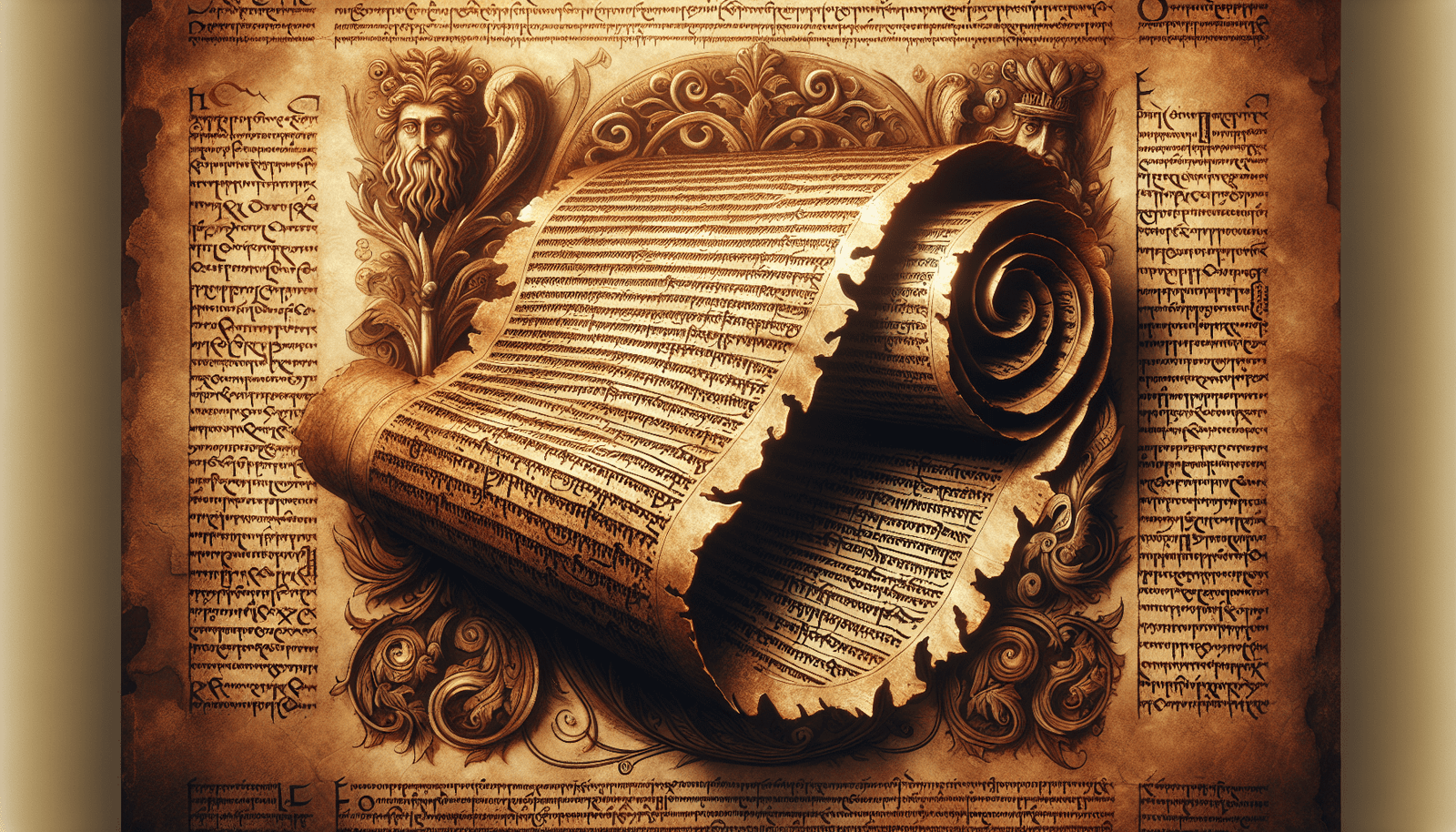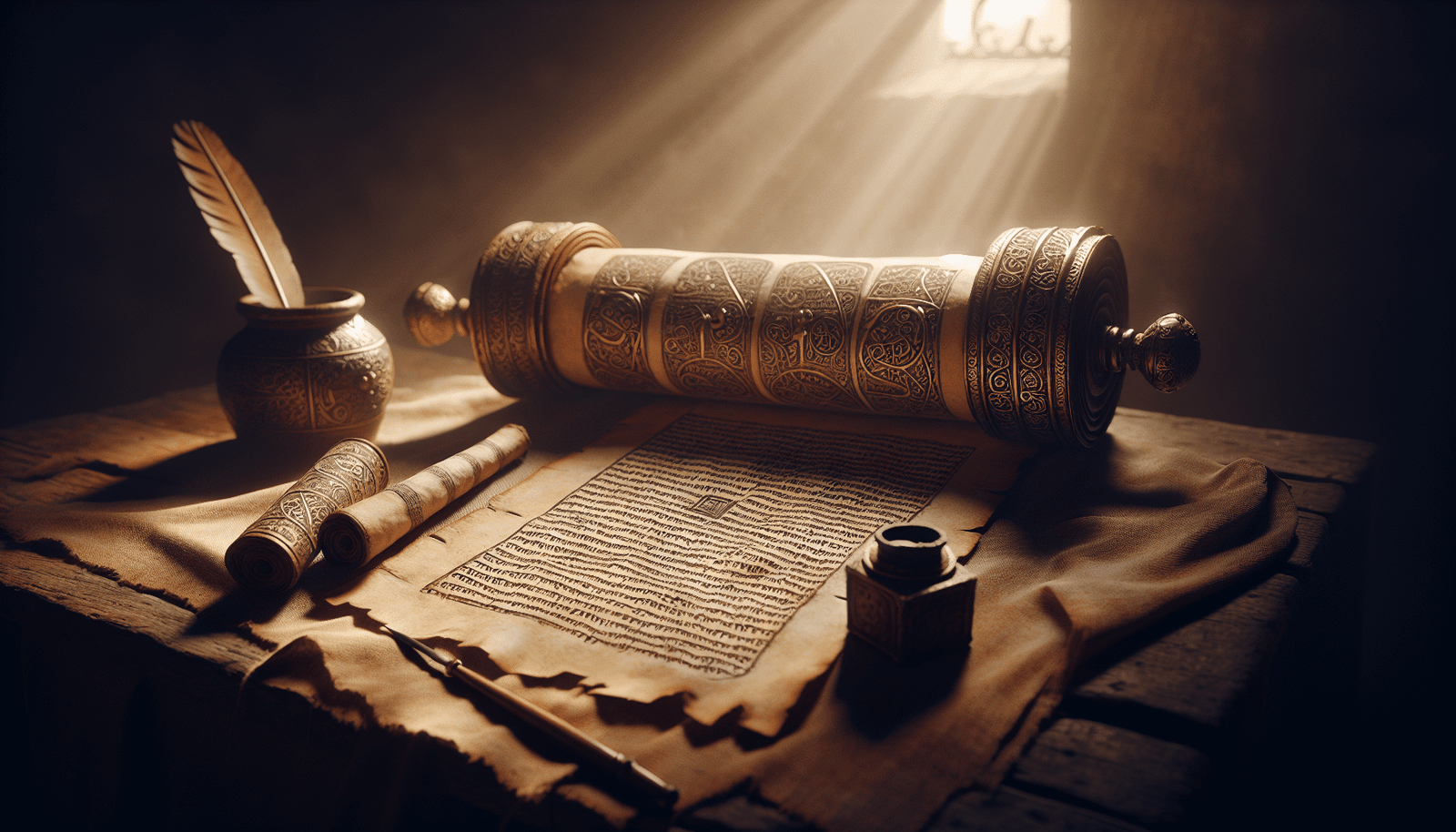Roland de Vaux holds a prominent position in the field of Biblical archaeology due to his immense impact on the subject. Through his rigorous research and excavation work, de Vaux has shed light on various aspects of the Bible, providing valuable insights and enhancing our understanding of ancient history. His contributions have not only made a lasting impression on the field but have also paved the way for future scholars and archaeologists to continue exploring the rich tapestry of the biblical past. In this article, we will delve into the life and work of Roland de Vaux, examining the profound influence he has had on the field of Biblical archaeology.

Early Life and Education
Roland de Vaux, a prominent figure in Biblical archaeology, was born on December 17, 1903, in Paris, France. Growing up in a family deeply rooted in academia, he developed a passion for history and archaeology from an early age. This passion led him to pursue higher education, and he enrolled in the prestigious École Normale Supérieure, where he studied theology, Hebrew language, and ancient history. De Vaux’s education provided him with a solid foundation that would greatly contribute to his future work in the field of Biblical archaeology.
Career in Biblical Archaeology
Appointed Director of the École Biblique et Archéologique Française
Roland de Vaux’s career in Biblical archaeology took a significant turn when he was appointed as the Director of the École Biblique et Archéologique Française in Jerusalem in 1945. This esteemed position allowed him to conduct extensive research, excavations, and scholarly work in the Holy Land. As director, de Vaux played a pivotal role in shaping the institution’s focus on the study of the Bible through archaeological discoveries.
Excavations in Qumran
One of de Vaux’s most notable contributions to Biblical archaeology was his leadership in the excavations at Qumran. Qumran, located near the northwestern shore of the Dead Sea, became the site of numerous significant discoveries during de Vaux’s tenure. His team unearthed various artifacts, including pottery, scrolls, and remains of buildings, shedding light on the inhabitants of this ancient community and their way of life.
Contributions to the Understanding of Dead Sea Scrolls
De Vaux’s involvement in the excavation and study of the Dead Sea Scrolls revolutionized the field of Biblical archaeology and significantly contributed to our understanding of these ancient texts. Through meticulous analysis and translation efforts, de Vaux and his colleagues were able to decipher the content of the scrolls and correlate them to the wider context of the Hebrew Bible. Their work provided invaluable insights into the religious and historical aspects of the period in which the Dead Sea Scrolls were written.
Role in the Study of Ancient Israel
De Vaux’s Interpretation of Biblical Narratives
Roland de Vaux’s interpretation of Biblical narratives was deeply influenced by his archaeological findings and extensive knowledge of ancient history. He sought to contextualize the events described in the Bible within their historical and geographical framework, providing a more comprehensive understanding of various episodes and characters. De Vaux’s attention to detail and his rigorous analysis of archaeological evidence allowed him to present a more nuanced and informed interpretation of the Biblical narratives.
Impact on the Historical Understanding of Ancient Israel
Through his research and interpretations, de Vaux made a significant impact on the historical understanding of ancient Israel. His work shed light on the religious and political organization of ancient Israelite society, as well as its social and economic life. De Vaux’s findings highlighted the importance of material culture in reconstructing the daily lives of ancient Israelites, giving researchers a clearer picture of this ancient civilization.
Challenges and Criticisms
While de Vaux’s work in Biblical archaeology was highly regarded, it did face some challenges and criticisms. Some scholars questioned the extent to which archaeological evidence could be used to interpret and understand the Bible accurately. Additionally, there were debates over the dating and authorship of certain texts, leading to differing interpretations and conflicting theories. These challenges and criticisms, while part of the scholarly process, also shaped the ongoing discussion around de Vaux’s contributions to the field.
Legacy and Influence
De Vaux’s Influence on Future Scholars and Archaeologists
Roland de Vaux’s work continues to shape the field of Biblical archaeology and inspire future scholars and archaeologists. His meticulous excavation techniques, adherence to scientific methods, and attention to detail set a standard for archaeological practices that is still followed today. De Vaux’s commitment to integrating ancient texts with archaeological findings also provided a framework for future researchers to bridge the gap between the Bible and the material culture of ancient Israel.
Continued Relevance of His Findings
The findings and interpretations of Roland de Vaux remain relevant and continue to contribute to new discoveries and understandings in the field of Biblical archaeology. Researchers still reference his work when examining the historical and cultural context of ancient Israelite society. De Vaux’s comprehensive studies serve as a foundation for scholars investigating the interplay between the Bible, archaeology, and the broader ancient Near Eastern world.
Controversies and Debates Surrounding His Work
As with any influential figure in academia, Roland de Vaux’s work has not been free from controversies and debates. Some scholars and researchers have challenged specific interpretations and theories proposed by de Vaux, leading to alternative hypotheses and revisions of his findings. These ongoing discussions are a testament to the dynamic nature of the field and the continual growth and refinement of knowledge.
Archaeological Methodology and Techniques
Excavation Techniques
Roland de Vaux’s excavation techniques were meticulous and rigorous, aimed at preserving the integrity of the archaeological record. His team utilized careful stratigraphy to uncover and distinguish layers of debris and artifacts, allowing for accurate dating and contextual analysis. De Vaux’s emphasis on systematic excavation practices set a standard for future archaeological endeavors in the region.
Interpretation of Archaeological Finds
De Vaux’s interpretation of archaeological finds was marked by a multidisciplinary approach. He integrated textual and historical evidence with material culture, offering a comprehensive analysis of the ancient societies he studied. This methodology allowed for a greater understanding of the social, religious, and economic aspects of ancient Israelite life and the wider context of the biblical narrative.
Use of Comparative Studies
In addition to excavation and interpretation, Roland de Vaux employed comparative studies to gain a broader understanding of the ancient Near Eastern world. By examining similar cultures and societies, de Vaux was able to identify similarities and differences, expanding the scope of his research and providing valuable insights into the cultural and historical context of ancient Israel.
Excavations at Qumran
Discovery of the Dead Sea Scrolls
One of the most groundbreaking findings of Roland de Vaux’s excavations at Qumran was the discovery of the Dead Sea Scrolls. These ancient scrolls, hidden in caves near the site, contained a vast collection of Jewish texts, including biblical and non-biblical books. The significance of this discovery cannot be overstated, as the Dead Sea Scrolls revolutionized the understanding of ancient Judaism, early Christianity, and the development of the Hebrew Bible.
Analysis of the Qumran Community
De Vaux and his team meticulously analyzed the remains of buildings, pottery, and other artifacts at Qumran to gain insights into the community that once inhabited the site. From this analysis, they concluded that Qumran was likely a sect or religious community associated with the scrolls. Their findings provided valuable information about the social dynamics, religious practices, and everyday life of the Qumran community.
Debates over the Relationship Between Qumran and the Scrolls
Despite the groundbreaking discoveries at Qumran, the relationship between the site and the Dead Sea Scrolls remains a subject of debate among scholars. Some argue that the scrolls belonged to the people of Qumran, while others propose alternative theories suggesting they were collected from various sources and brought to the site for safekeeping. The ongoing discussions surrounding this topic demonstrate the complexity of interpreting archaeological evidence and the need for further investigation.
Contribution to the Understanding of Dead Sea Scrolls
Role in Obtaining and Translating the Scrolls
Roland de Vaux played a crucial role in obtaining and preserving the Dead Sea Scrolls. His leadership and expertise in archaeology allowed for careful excavation and documentation of the scrolls, ensuring their preservation and accessibility for future study. De Vaux’s knowledge of ancient languages and his collaboration with linguists facilitated the translation and interpretation of the scrolls, providing remarkable insights into ancient Jewish and biblical texts.
Significance of the Scrolls for Biblical Studies
The Dead Sea Scrolls have had a profound impact on the field of Biblical Studies. They provide a wealth of information on the textual history, language, and religious practices of ancient Judaism, shedding light on the development of the Hebrew Bible and its interpretation. The scrolls have challenged traditional views, sparked new avenues of research, and enriched our understanding of the historical and cultural context of the ancient Near East.
Interpretation and Controversies
The interpretation of the Dead Sea Scrolls and the controversies surrounding their meaning continue to be subjects of intense scholarly debate. Different theories regarding the authorship, dating, and religious significance of specific texts within the collection have emerged, leading to diverse interpretations and conflicting conclusions. Despite these challenges, Roland de Vaux’s contributions to the study of the scrolls provide a solid foundation for ongoing research and exploration.
De Vaux’s Interpretation of Biblical Narratives
Historical and Geographical Context
Roland de Vaux’s interpretation of biblical narratives emphasized the historical and geographical context in which they were set. By integrating archaeological evidence and historical records, he sought to situate the events described in the Bible within their specific time and place. This approach allowed for a more nuanced understanding of the biblical narratives, moving beyond pure theological interpretations.
Relationship Between Archaeology and the Bible
De Vaux’s work highlighted the intricate relationship between archaeology and the Bible, demonstrating how archaeological discoveries can illuminate and enrich our understanding of biblical events and characters. By studying the material culture of ancient Israel, de Vaux bridged the gap between the biblical text and archaeological evidence, providing context and supporting evidence for the stories depicted in the Bible.
Challenges to De Vaux’s Interpretation
While de Vaux’s interpretation of biblical narratives has garnered widespread recognition, it has also faced challenges from scholars who argue for alternative viewpoints. Some critics contend that greater caution should be exercised when drawing direct connections between archaeological findings and the biblical text, highlighting the potential biases and limitations inherent in the interpretation process. These challenges have spurred ongoing discussions and a more nuanced approach to understanding the interplay between archaeology and the Bible.
Impact on the Historical Understanding of Ancient Israel
Religious and Political Organization
Roland de Vaux’s research significantly contributed to our understanding of the religious and political organization of ancient Israel. Through his analysis of archaeological remains, he identified key patterns and structures that shed light on the religious practices and power dynamics within ancient Israelite society. De Vaux’s work not only enhanced our understanding of the ancient Israelites’ religious beliefs but also provided insights into the complex political landscapes they navigated.
Social and Economic Life
De Vaux’s excavations and analysis of material culture also offered valuable insights into the social and economic life of ancient Israelites. By examining pottery, buildings, and other artifacts, he was able to reconstruct aspects of their daily lives, including their agricultural practices, trade networks, and social hierarchies. De Vaux’s work provided a holistic understanding of the socio-economic realities of ancient Israel.
Importance of Material Culture
One of the central themes woven throughout de Vaux’s work is the significance of material culture in understanding ancient Israelite society. He recognized that artifacts and physical remains were not mere curiosities but vital pieces of evidence that shaped our understanding of the people and events of the biblical world. De Vaux’s emphasis on material culture has had a lasting impact, influencing subsequent archaeological research and prompting a more holistic approach to the study of ancient Israel.
De Vaux’s Influence on Future Scholars and Archaeologists
Methodological Approaches
Roland de Vaux’s meticulous excavation techniques, attention to detail, and integration of various disciplines have had a profound influence on future scholars and archaeologists. His methodological approaches, such as careful stratigraphy and interdisciplinary studies, continue to serve as models for conducting archaeological research. Researchers today draw inspiration from de Vaux’s commitment to rigorous methodology, ensuring that excavations are conducted in a systematic and scientifically sound manner.
Concepts of Philology and Epigraphy
De Vaux’s extensive knowledge of ancient languages, including Hebrew and Aramaic, coupled with his understanding of epigraphy (the study of inscriptions), has greatly impacted the approach to deciphering and analyzing ancient texts. Scholars continue to utilize the concepts and techniques developed by de Vaux to unlock the secrets of inscriptions and manuscripts from the ancient world, deepening our understanding of the texts and their historical context.
Continued Study of Qumran and the Dead Sea Scrolls
Roland de Vaux’s contributions to the study of Qumran and the Dead Sea Scrolls sparked widespread interest in these areas of research. His excavations and subsequent interpretations inspired subsequent generations of scholars to delve deeper into the mysteries of the site and the contents of the scrolls. The continued study of Qumran and the Dead Sea Scrolls owes much to de Vaux’s pioneering work and serves as a testament to the enduring legacy of his contributions to the field of Biblical archaeology.
In conclusion, the impact of Roland de Vaux on Biblical archaeology cannot be overstated. Through his meticulous excavations, interdisciplinary approach, and interpretation of archaeological finds, de Vaux provided invaluable insights into the historical, cultural, and religious context of ancient Israel. His work, particularly in the discovery and study of the Dead Sea Scrolls, revolutionized our understanding of the Hebrew Bible and continues to inspire ongoing research and exploration in the field of Biblical archaeology. The legacy of Roland de Vaux serves as a roadmap for future scholars, guiding their quest to uncover the rich tapestry of ancient civilizations and their profound influence on the development of human history.






